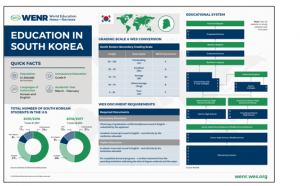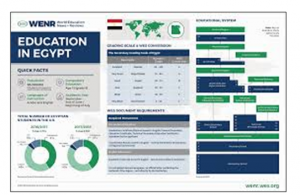Outline Marketing Plan for Entry of the Hertfordshire Business School into an Emerging Market, with Justifications 2020
Marketing across various cultures leads to the allocation of a significant place, which is, related to the cultural variable.
It is, regarded as dangerous to equate the attitude of the people complete with the cultural group that they belong to (Wills et al, 2018). Moreover, the perception that the marketers want to offer to other cultures cannot be, stereotyped or shallow, thus providing the consumers with a picture of a product that is, solely made for their needs.
It is very complex to operationalize and personalize the cultural variable in the marketing aspect. Here it is necessary to abide by the national regulations, the wants of the people aligned with the requirement that the company wants to cater to.
In the scenario of educational institutions that want to expand to international markets, it requires having the resources and capabilities that will help the educational institution for sustainable operation (Oderanti and Li, 2018).
The higher educational institutions are maximizing their educational products with the requirements of the masses. Here integrated perspective of global education is, taken into account.
For making the institution stay successful in the global operation or the new market, it is necessary to approach it with a strategic direction.
This will help the institution in successfully implementing the international and cultural marketing principles with the promotional and integrated marketing elements that will help in providing good students.

Image 1: Marketing Across Cultures
(Source: Sarabia-Sanchez and Cerda-Bertomeu, 2018)
The report will highlight the market entry evaluation of the Hertfordshire Business School preference in Egypt or South Korea.
To identify the best location, it is necessary to apply strategic tools such as pestle evaluation and swot evaluation. With the help of which an action plan for the educational organization can be, drafted which will form the viable marketing base strategy for the Herford hire Business School.
The report will highlight the cultural implications of South Korean and Egypt. The report will help in comprehending the strategies that the international business organizations take into consideration for marketing in the new viable marketing conditions.
The Hertfordshire Business School has planned to expand its institutional capacity by entering into the foreign markets, for which it has selected to locations for the establishment of the educational institution (Ford et al, 2016).
The institutions want to initiate business-related educational programs for the students in the new market. The subjects that the educational organizations offer to their pupils are accounting, human resource management, tourism, digital marketing, business management studies, economics, and others.
The instructions also provide the students with additional facilities so that they can seek their personal and professional development with their institution. Here the organization has chosen to markets for establishing their new educational institution, it is either Egypt or South Korea.
The institution is capable enough in providing all the facilities to the students for their future scope, and the placements that the institution offers are attractive and have successful trace records (Katsikeas et al, 2019).
The pestle evaluation of the nations helps in identifying the macroeconomic elements that will affect the growth of the institution.
With the help of the evaluation, the favorable marketing outcomes can be generated that will help in drafting a successful international marketing plan. Before going into the macroeconomic findings, it is necessary to highlight the cultural specifications that are present in the nation such as Egypt and South Korea (Kotler et al, 2018).
The Hofstede’s cultural theory has highlighted the cultural elements that will assist the businesses in laying down their marketing plan based on the cultural findings.
| Cultural Specifications | South Korea | Egypt
|
| Masculinity and Feminism | 39 | 45 |
| Indulgence | 29 | 4 |
| Long term orientation | 100 | 7 |
| Individualism | 18 | 25 |
| Power Distance | 60 | 70 |
| Uncertainty Avoidance | 85 | 80 |
Table 1: Cultural Implications of Hofstede’s Model
Source:
South Korea, as the nation had a turbulent political past, however, currently it has turned stable and has provided the corporations with business benefits. The framework of the politics in South Korea is, conducted through the presidential representative for the democratic republic.
The nation has a multi-party political approach (Park et al, 2016). The Republic of South Korea is, regarded as an educated nation. Here around 70percent of the people have completed their tertiary education, sifting the highest educational statistics that are necessary for the viable growth of the students as well as of the educational institutions.
The educational system is, standardized in a qualitative manner that makes the institutions provide an excellent educational ambiance for the students and the teachers. The political ambiance of the nation currently will help the Hertfordshire Business School to collaborate with others in a viable manner.
The socio-cultural factors can provide a business school with strong networking capability (Fleckenstein and Lee, 2019).
As the rate of unemployment in the nation is low, so the students can get a better placement absorption scope in South Korea (Ding, 2019).
The nation has a strong implementation of the human rights principles signifying that the Business schools need to set standardized guidance for seamless educational operation in the nation.
This will help the nation in developing righteous individuals. The taxation rate in this nation is 10% signifying high growth prospective of the HBS (Morgan et al, 2018).

Image 2: Education facts in South Korea
(Source: Chung and Choi, 2016)
The imports and the exports in the nation are mostly concentrated with the electronic and engineered products signifying that the nation has high tech ambiance that will help the educational institution in developing the technical facilities needed for the student’s activities.
The current strengths of the South Korea nation are its technological system of business that has led to product innovation and creativity. The telecommunication sector the nation is very strong, signifying that the students of the Hertfordshire Business School.
Moreover, the government of the nation offers corporations with technological benefits and investment capabilities for the functions (Im et al, 2016). The government of South Korea is, mostly focused on investing in the research and development companies so that they can innovate new products.
This will provide the Hertfordshire Business School to attain a competitive advantage in the dynamic and competitive market environment. The financial growth of the nation is higher than Egypt signifying its national capabilities will help the B- School in operating peacefully and without why financial tension.
The legal regulation of the South Korea nation has a favorable taxation policy and there is a separate taxation system for the corporations that will provide operational longevity (Choi et al, 2017).
On the other, hand Egypt as the nation for the establishment of the Hertfordshire Business School is regarded as not as attractive or leading destination for its expansion and advancement.
Egypt is regarded as the transcontinental nation, which is the 15th most populous nation in the globe (Assaad et al, 2018). The corporate tax in this nation in 22.5%, which suggest that it has to pay high taxation rates than compared to the South Korea (Harb et al, 2019).

Image 3: Educational Facts of Egypt
(Source: Adel Ali and Rafie Mohd Arshad, 2018|)
The rate of inflation is also high significant that the HBS has to increase their cost of entry and set up to match the national requirements.
It also suggest that the school to maintain such high operational cost in a continuous manner. The political scenario of the Egypt is not favorable for the HBS expansion (Gomes et al, 2019).
The unemployment rate is high we signifying low absorption capacity of the passed out students.
The rate of crime and illegal activities is higher in the Egyptian nation signifying that, the ambiance would have negative impact on the profitability of the nation (Mousa and Alas, 2016).
There is a continuous war between the military and the democracy with the Nile River signifying that the HBS has to go with complex imitations in the Egypt. It is necessary for the HBS to avoid the Egypt as the set of the expanded operation (Elshafie, 2018).
SWOT Evaluation of the Hertfordshire Business School
The strength of the HBS lies in the varied subject offering which lets the institution in attracting students from different corners of the world.
HBS has a strong capability in maximizing its networking approaches that has helped the institution in collaborating and coordinating with the educational exchange programs (Kaleka and Morgan, 2019).
These programs help the pupils in preparing for the professional field so that there that can provide good leadership example. The strong partnership capabilities help the institution in increasing the scope for the student placement in the business school.
The weakness of the institution is that, it is not aware of many people, thus increasing the scope for the marketing activities in necessary for the HBS. Without awareness, it is not possible for the educational institution to attract the students.
The market competition is high in the South Korea, as there are different international educational institutions such as Seoul National University, Sungkyunkwan University, Pohang University of Science and Technology and others.
Here it is necessary for the institution to provide strong and stadnrised educational services to the pupils.
The opportunity for the development of the HBS is wide as the initiation of the disruptive technology with the digital learning and online education programs will help the organization in integrating, collaborating and advancing the digital technology with the educational elements of the Hertfordshire Business School (Hult et al, 2018).
Outline of the Marketing Action Plan of the HBS
The Hertfordshire Business School wants to expand their operational strategy, for which South Korea is the most attractive and leading educational destinations needed for the valuable growth and development of the organizations and its stakeholders (Ibeh et al, 2019).
Here the institution must select standardization and adaptive strategies in the South Korea Nation. The standardization strategy will support the organization in aligning the functional strategies so that it can decrease the cost, which is necessary for attaining optimization in the functional operation of the institution.
Decreasing the cost will attract the overseas students to acidometer their educational cost. Moreover, with the standardization, the markets would be able to offer consistency in the programs related with the educations syllabus and the subjects provided by the HBS.
In the adaptive marketing strategy, the markets can modify the educational courses according the significant geographical and professional requirement that can easily taken by the student.
The promotional strategies that the HBS must adopt include advertisement for student admission in the social networking sites and in the company websites (Michaelidou et al, 2019).
The HBS marketers can consider Ansoff matrix so that it can enter the new market with their programs.
Product development strategy, product diversification strategy will help the HBS in introducing attractive educational modules for the students in the South Korea (Pedada et al, 2019).
In the product development strategy, the business school can introduce professional courses as well to attract the professionals, as this will help the organization in gaining quality reputation.
The strategy will help in attracting new students in the University, thus increasing the scope for students in the HBS.
The market penetration strategy can be, used to initiate the new educational courses to the students, so that they are aware of the new knowledge prospects of the HBS. This helps in making a mark by the organization in providing varied programs, thus increasing the attarctability of the organizations service offerings (Baicchi and Pinelli, 2017).
The company can introduce online learning programs that can be availed by the other students residing in different country.
SMART goals development by the HBS will assist the management and the marketers to develop the objectives that can be, converted into practical tool for effective outcome.
Comprehending the cultural variations and requirements of the nation, will help the marketers of the educational institution in bridging the gap related with the culture and marketing elements (Amankwah-Amoah et al, 2018).
The base of the International Strategy
Strategies depend upon the countries strengths that it can offer to the institution’s marketers and planners.
For the HBS, it is essential to choose South Korea as the most attractive location for the development of the educational institution (Katsikeas, 2018). With the assistance of South Korea, the HBS marketers can sustainably be, led to develop the leading educational institution in the nation.
The quality of the nation’s infrastructure has the potential in providing the HBS with a promotional drive for work ethically in the nation. The economic and political scenario, in the end, will provide immense benefits regarding the corporation tax and other concessions associated with the business.
The per capita income of the nation is high suggesting that its nationals have the affordable capacity to invest in the growth of the organization (Abdulai et al, 2017).
It also signifies that the country will be able to provide placement with a high salary package. The business destinations will be favorable for the diverse students to mix with the international culture that is necessary for making future leaders (Li et al, 2019).
The HBS organization can opt for Greenfield investment and direct ownership or partnership. These strategies will help the HBS in successfully implementing the integrated functions of marketing across the cultures.
The Greenfield investment (foreign direct investment) will help the institution in increasing their financial capability to build the needed educational facilities in the organization (Yang and Yousaf, 2016).
The direct ownership will help the HBS in acquiring every asset of the other educational institution and integrating with them to form universal standardized guidelines.
The partnership will help the HBS in making collective viable decisions that will a strong opinion from the nationals of South Korea (Sheth, 2020).
The report related with the “Marketing across Cultures” highlight the evaluation and the feedback based on the evaluation in relation with the two nations, South Korea and Egypt.
The Hertfordshire Business School wants to expand its market operation, for which South Korea is, regarded as the best leading destination for the set up of the organizations.
The strengths of the HBS must be, aligned with the SMART goals that will support the institution in successful implementation of the functional and international marketing activities.
The Egypt’s ambiance will have a negative impact of the HBS, signifying that South Korea has the best global marketing opportunity for the Hertfordshire Business School.
Abdulai, M., Ibrahim, H. and Mohammed, M.A., 2017. Communicating across cultures in multinational Ibis West Africa. International Journal of Intercultural Relations, 58, pp.42-53.
Adel Ali, R. and Rafie Mohd Arshad, M., 2018. Empirical analysis on factors impacting on intention to use m-learning in basic education in Egypt. International Review of Research in Open and Distributed Learning, 19(2).
Amankwah-Amoah, J., Boso, N. and Debrah, Y.A., 2018. Africa rising in an emerging world: an international marketing perspective. International Marketing Review.
Assaad, R., Krafft, C. and Salehi-Isfahani, D., 2018. Does the type of higher education affect labor market outcomes? Evidence from Egypt and Jordan. Higher education, 75(6), pp.945-995.
Baicchi, A. and Pinelli, E. eds., 2017. Cognitive modelling in language and discourse across cultures. Cambridge Scholars Publishing.
Choi, Y., Lee, J. and Hwang, S., 2017, April. In Accommodation with Assimilation? Patterns of Marriage Immigrant Parents’ Educational Involvement in South Korea. In PAA 2017 Annual Meeting. PAA.
Chung, J. and Choi, T., 2016. English education policies in South Korea: Planned and enacted. In English language education policy in Asia (pp. 281-299). Springer, Cham.
Ding, F., 2019, August. A Comparative Study on the Current Situation of Physical Education Curriculum Reform in Primary Schools in China and South Korea. In 5th International Conference on Arts, Design and Contemporary Education (ICADCE 2019). Atlantis Press.
Elshafie, S., 2018. Reform Strategies of Medical Education in Egypt. Fayoum University Medical Journal, 1(1), pp.24-27.
Fleckenstein, T. and Lee, S.C., 2019. The political economy of education and skills in South Korea: democratisation, liberalisation and education reform in comparative perspective. The Pacific Review, 32(2), pp.168-187.
Ford, J., Crittenden, V., Chan, F.F.Y., Petrovici, D. and Lowe, B., 2016. Antecedents of product placement effectiveness across cultures. International Marketing Review.
Gomes, E., Sousa, C. and Vendrell-Herrero, F., 2019. International marketing agility. International Marketing Review.
Harb, S., ElHaggar, S.M. and Sewilam, H., 2019. Developing sustainable school guidelines: the case of Egypt. In E3S Web of Conferences (Vol. 96, p. 03004). EDP Sciences.
Hult, G.T.M., Hair Jr, J.F., Proksch, D., Sarstedt, M., Pinkwart, A. and Ringle, C.M., 2018. Addressing endogeneity in international marketing applications of partial least squares structural equation modeling. Journal of International Marketing, 26(3), pp.1-21.
Ibeh, K., Crick, D. and Etemad, H., 2019. International marketing knowledge and international entrepreneurship in the contemporary multi speed global economy. International Marketing Review.
Im, S., Yoon, H.G. and Cha, J., 2016. Pre-service Science Teacher Education System in South Korea: Prospects and Challenges. Eurasia Journal of Mathematics, Science & Technology Education, 12(7).
Kaleka, A. and Morgan, N.A., 2019. How marketing capabilities and current performance drive strategic intentions in international markets. Industrial Marketing Management, 78, pp.108-121.
Katsikeas, C., Leonidou, L. and Zeriti, A., 2019. Revisiting international marketing strategy in a digital era. International Marketing Review.
Katsikeas, C.S., 2018. Special Issue on the Future of International Marketing: Trends, Developments, and Directions. Journal of International Marketing, 26(1), pp.1-3.
Kotler, P., Keller, K.L., Ang, S.H., Tan, C.T. and Leong, S.M., 2018. Marketing management: an Asian perspective. Pearson.
Li, R., Liu, Y. and Bustinza, O.F., 2019. FDI, service intensity, and international marketing agility. International Marketing Review.
Michaelidou, N., Micevski, M., Kadic-Maglajlic, S., Budhathoki, T. and Sarkar, S., 2019. Does non-profit brand image mean the same across cultures? An exploratory evaluation of non-profit brand image in three countries. International Marketing Review.
Morgan, N.A., Feng, H. and Whitler, K.A., 2018. Marketing capabilities in international marketing. Journal of International Marketing, 26(1), pp.61-95.
Mousa, M. and Alas, R., 2016. Workplace spirituality and organizational commitment: A study on the public schools teachers in Menoufia (Egypt). African Journal of Business Management, 10(10), p.247.
Oderanti, F.O. and Li, F., 2018. Commercialization of eHealth innovations in the market of the UK healthcare sector: A framework for a sustainable business model. Psychology & Marketing, 35(2), pp.120-137.
Park, H., Byun, S.Y., Sim, J., Han, H. and Baek, Y.S., 2016. Teachers’ Perceptions and Practices of STEAM Education in South Korea. Eurasia Journal of Mathematics, Science & Technology Education, 12(7).
Pedada, K., Arunachalam, S. and Dass, M., 2019. A theoretical model of the formation and dissolution of emerging market international marketing alliances. Journal of the Academy of Marketing Science, pp.1-22.
Sarabia-Sanchez, F.J. and Cerda-Bertomeu, M.J., 2018. Expert stakeholders’ expectations of how the public sector should act in place branding projects. Journal of Place Management and Development.
Sheth, J.N., 2020. Borderless Media: Rethinking International Marketing. Journal of International Marketing, 28(1), pp.3-12.
Wills, W.J., Danesi, G., Kapetanaki, A.B. and Hamilton, L.K., 2018. The socio‐economic boundaries shaping young people’s lunchtime food practices on a school day. Children & Society, 32(3), pp.195-206.
Yang, H. and Yousaf, A., 2018. Preference for relationship help and emotional help from third parties across cultures. Cross Cultural & Strategic Management.


